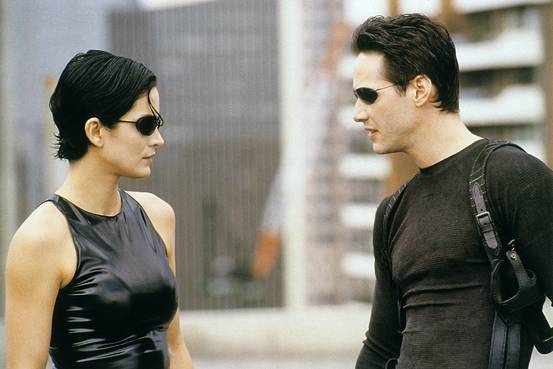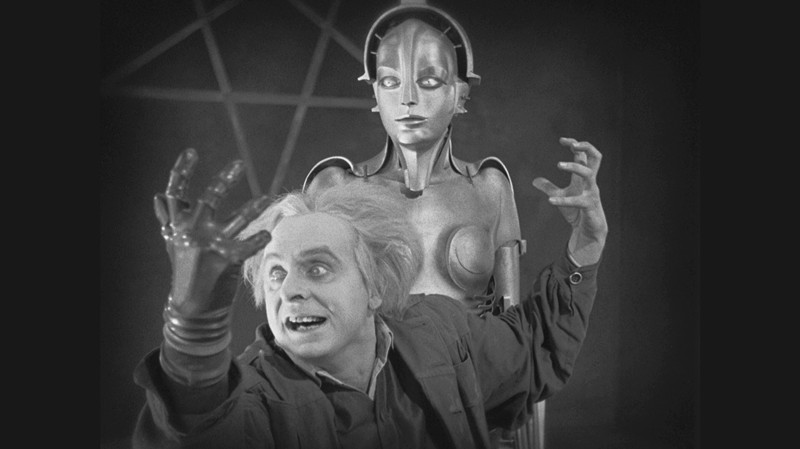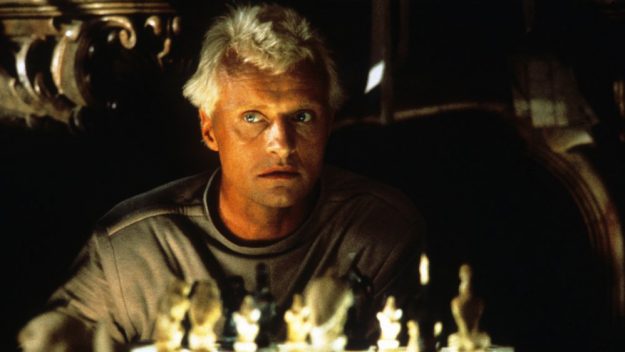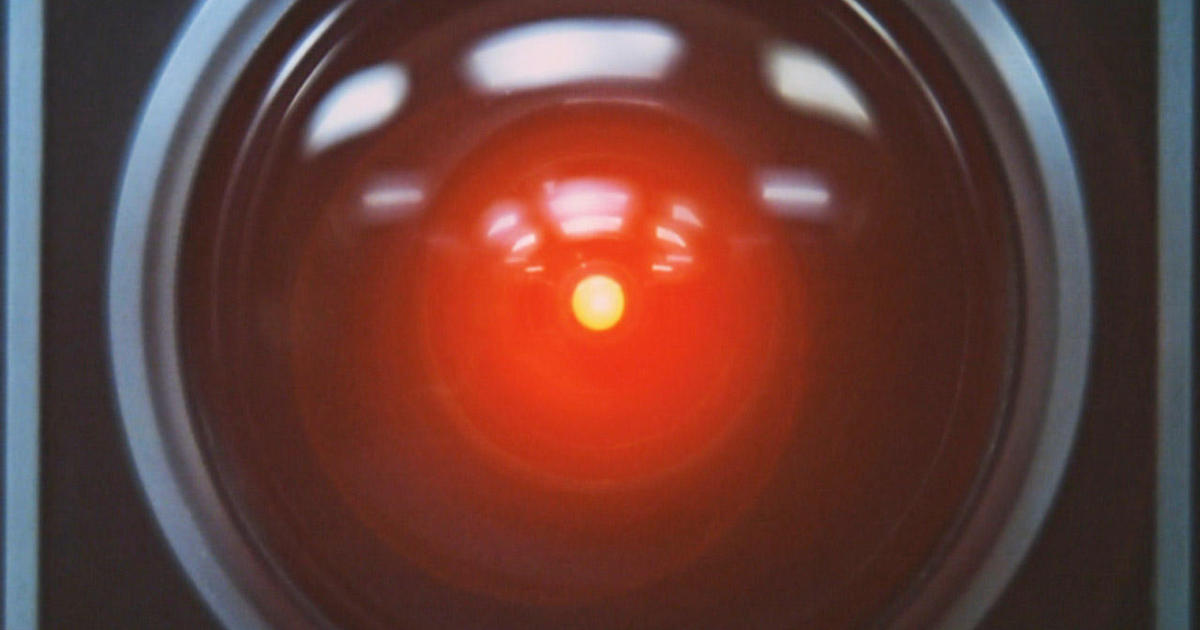5. Ex Machina (2014)

When computer programmer Caleb Smith wins a competition to spend a week with the company’s reclusive CEO at his private mountain estate, he is surprised to arrive to find out that he has been chosen as the human component in a Turing test. He must test the capabilities and consciousness of beautiful robot Ava. However, Caleb soon finds himself drawn to Ava when it turns out that she is more self aware than either man had thought capable.
Ex Machina was made on a budget of $15 million and grossed over $36 million worldwide. Upon release it was critically acclaimed and was recognised as one of the best films of the year. Ex Machina was nominated for Best Original Screenplay and Best Visual Effects at the 88th Academy Awards, winning the award for the latter.
Ex Machina was the brainchild of Alex Garland, who wrote and directed the film. Garland was inspired to write Ex Machina after years of discussions with a neuroscientist friend who told him that machines could never become sentient. However, when Garland was eleven years old, he experimented with a computer that he often felt like had a mind of its own. Putting the two ideas together, he wrote Ex Machina. Garland wanted complete creative freedom with his project and so he endeavoured to make the film on as small of a budget as possible.
4. The Matrix (1999)

When computer worker Thomas Anderson, also known as computer hacker Neo, meets Morpheus, he finds out that nothing around him is real and he is actually living in The Matrix. The Matrix is a huge artificial intelligence system that has tapped into people’s consciousnesses and created the illusion of a free world whilst using human bodies as batteries and disposing of them when they are used. Morpheus believes that Neo is the key to bringing down The Matrix, but first Neo must decide if he wants to continue to live in the world he has always known or join the fight to take down The Matrix.
Made on a budget of $63 million and grossing over $460 million at the box office, The Matrix is seen as one of the greatest science fiction films of all time. Directors The Wachowskis’ approach to the action scenes was seen as unique and innovative. In particular, The Matrix has come to be synonymous with the visual effect known as ‘bullet time’ – a shot where the action moves in slow motion whilst the camera moves at normal speed.
The success of The Matrix not only led to two sequels – The Matrix Reloaded and The Matrix Revolutions, it also led to Hollywood adopting the use of Eastern approaches to action filmmaking. The Matrix was added to the National Film Registry in 2012 and has appeared in many greatest films of all-time lists. A fourth film is currently in development.
3. Metropolis (1927)

In a futuristic urban utopia, young Freder lives a privileged life. When he discovers that there is a bleak underworld beneath the utopia populated by mistreated workers, he becomes intent on helping them. Meanwhile, a robot is ordered by her mad scientist creator to quell an uprising brewing in the city.
Directed by Fritz Lang, Metropolis is regarded as one of the most important films of all time – it was one of the first feature length science fiction films to be made. The silent film was made on a budget of 5.3 million Reichsmarks and took over sixteen months to film. Upon its release, Metropolis received mixed reviews. The visuals and performances were praised but the film’s plot and storyline were seen as silly and naïve. It was reported that the film premiered to boos and hisses from the audience.
The film has since been restored several times since its 1927 release and has been referenced frequently in popular culture. In 2001, Metropolis was inscribed on the UNESCO’s Memory of the World Register, the first film thus distinguished.
2. Blade Runner (1982)

Retired replicant hunter Deckard is forced to return to his old job in order to eliminate four escaped replicants from the colonies that have returned to Earth. After meeting the replicants creator, Deckard meets Rachel, a replicant who is unaware of her true nature.
Loosely based on Philip K. Dick’s 1968 novel Do Androids Dream of Electric Sheep? Blade Runner was directed by Ridley Scott and adapted by Hampton Fancher and David Peoples for the screen. Blade Runner initially divided critics and underperformed at the box office, only grossing $32.9 million against its budget of $30 million.
The film later went on to become a cult favourite and is now regarded as one of the best science fiction films of all time. Blade Runner has been the inspiration for many other films and video games and it also brought the stories of Philip K. Dick to the attention of Hollywood, and consequently several more of his works have since been adapted for the screen.
In 2017, Blade Runner 2049 was released to critical acclaim and was a commercial success. The sequel’s success has prompted talks of another possible sequel and it looks as though Blade Runner’s legacy will continue to impact the science fiction genre.
1. 2001: A Space Odyssey (1968)

On a mysterious mission into the depths of space, Dr Dave Bowman and a team of astronauts notice that their spaceship’s computer system is beginning to display increasingly worrying and strange behaviours. Eventually this leads to a tense showdown between man and machine, all while an imposing black structure shows a startling connection between the past and the future.
Inspired by Arthur C. Clarke’s short story The Sentinel, 2001: A Space Odyssey was directed by Stanley Kubrick and written by Kubrick and Clarke. 2001: A Space Odyssey was made with a budget of $12 million and grossed over $190 million at the box office. The film received both strong critical praise and derision upon its release in 1968, with some critics viewing it as depressingly dark whilst others saw it as an optimistic view of mankind. The film saw Kubrick receive an Academy Award for Visual Effects.
2001: A Space Odyssey has amassed a cult following since its release and is widely regarded and cited as one of the best and most influential films of all time. The film is responsible for inspiring and influencing many subsequent filmmakers, such as Steven Spielberg and George Lucas.